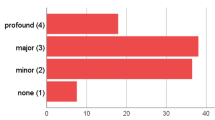Abstract
The use of role-playing (“active learning”) as a teaching tool has been reported in areas as diverse as social psychology, history and analytical chemistry. Its use as a tool in the teaching of engineering ethics and professionalism is also not new, but the approach develops new perspectives when used in a college class of exceptionally wide cultural diversity. York University is a large urban university (40,000 undergraduates) that draws its enrolment primarily from the Greater Toronto Area, arguably one of the most culturally diverse cities in the world, embracing the largest percentage of Canada’s immigration. Among the area’s five million inhabitants, 50% identify themselves as a visible minority born outside Canada, while over 100 languages and dialects are spoken daily. Although students admitted from this international pool have usually been exposed to western attitudes during secondary education and are rapidly assimilated into Canadian culture, responses to specific ethical issues are strongly influenced by their prior culture. Two and three-part scripts for case studies based on NSF or original scenarios were written to illustrate issues such as gifts, attitudes towards women and ethnic minorities, conflict of interest, whistle-blowing, sexual harassment, individual rights, privacy, environment, intellectual property, and others. Following the presentation, the actors lead group discussion based on previously specified questions. Once the initial shyness and reluctance of some cultures has been overcome through the building of rapport, students have written original scripts based on hypothetical or prior personal situations. The method is now being adopted in a short course format to assist the professional integration of foreign trained engineers.
Similar content being viewed by others
References
Statistics Canada, report initiated by the Multiculturalism and Human Rights Program at the Department of Canadian Heritage, March 22, 2005.
J. Paul Grayson (1996). The Visible Minority Question, Institute of Social Research, York University, ISBN: 1-55014-295-X.
Plous, S. (2000) Responding to Overt Displays of Prejudice: A Role-Playing Exercise”, Teaching of Psychology 27: 198–200.
Kurtz, S., Silverman, J. and Draper J. (1998) Teaching and Learning Communication Skills in Medicine, Radcliffe Medical Press, Abington, Oxon.
Walters, J.P. (1991) Role-Playing Analytical Chemistry Laboratories Part 1: Structural and Pedagogical Ideas. Anal. Chem. 63(20): 977A-985A; Role-Playing Analytical Chemistry Laboratories Part 2: Physical Resources. Anal. Chem. 63(22): 1077A–1087A; Role-Playing Analytical Chemistry Laboratories Part 3: Current Experiments. Anal. Chem. 63(24): 1179A–1191A.
Jackson, P.T and Walters, J.P. (2000) Role Playing in Analytical Chemistry: The Alumni Speak. J.Chem. Ed. 77(8): 1019–1025.
Loui, M. (1999). OEC International Conference on Ethics in Engineering and Computer Science, March 1999 http://onlineethics.org/edu/loui2.html
Reitz, J.G. (2005). Tapping Immigrants’ Skills: New Directions for Canadian Immigration Policy in the Knowledge Economy, Institute for Research on Public Policy, IRPP Choices 11(1), February 2005, ISSN 0711-0677 (www.irpp.org).
Alboim, N., Finnie, R. and Meng, R. (2005). The Discounting of Immigrants’ Skills in Canada: Evidence and Policy Recommendations, Institute for Research on Public Policy IRPP Choices 11(2), February 2005, ISSN 0711-0677 (www.irpp.org).
Borgas, G.J. (1999). Heaven’s Door: Immigration Policy and the American Economy, Princeton University Press, Princeton, NJ.
Reitz, J.G. (2001) Immigrant Success in the Knowledge Economy: Institutional Change and the Immigrant Experience in Canada, 1970–1995. Journal of Social Issues, 57, 3: 579–613.
Author information
Authors and Affiliations
Corresponding author
Rights and permissions
About this article
Cite this article
Prince, R.H. Teaching engineering ethics using role-playing in a culturally diverse student group. SCI ENG ETHICS 12, 321–326 (2006). https://doi.org/10.1007/s11948-006-0030-y
Received:
Revised:
Accepted:
Issue Date:
DOI: https://doi.org/10.1007/s11948-006-0030-y



